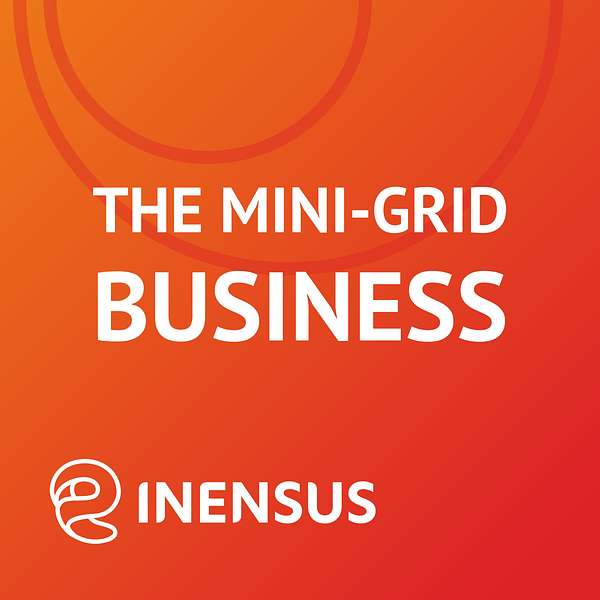
The Mini-Grid Business
Welcome to "The Mini-Grid Business," hosted by Nico Peterschmidt, CEO of the consultancy company INENSUS. With nearly two decades of experience working with over 100 mini-grid companies across Africa and Asia, INENSUS created a podcast, which becomes your gateway to the world of rural electrification through mini-grids.
In each episode, Nico and his guests – seasoned experts who have navigated the complexities of the mini-grid sector – offer candid insights based on real-life experiences. Whether they're individuals who have overcome significant challenges, policy makers shaping the sector’s frameworks and funding structures, or visionaries crafting the future of mini-grids, they all have unique perspectives to share.
From exploring successful pathways to profitability, to dissecting the reasons behind a company's struggles, "The Mini-Grid Business" delves deep into both theory and practice. It questions the accepted status quo of the mini-grid sector, aiming to unearth new perspectives or expose misunderstandings that need addressing.
This is a space for thought-provoking discussions, innovative ideas, and invaluable knowledge exchange.
Whether you are an industry veteran, a newcomer, or simply curious about the transformative potential of mini-grids, this podcast invites you to challenge your thinking, learn from others, and engage with a community that’s shaping a brighter, more sustainable future.
So, tune in, and enjoy "The Mini-Grid Business"!
LinkedIn: https://www.linkedin.com/company/inensus-gmbh/mycompany/
Twitter: INENSUS (@INENSUSgmbh) / X (twitter.com)
Visit www.inensus.com for more info.
The Mini-Grid Business
Electricity and Power: The Geopolitics of Energy Independence (English interpretation)
Use Left/Right to seek, Home/End to jump to start or end. Hold shift to jump forward or backward.
Sigmar Gabriel — former Vice Chancellor of Germany, former Federal Minister for Foreign Affairs, and former Federal Minister for Economic Affairs and Energy, as well as former Federal Minister for the Environment, Nature Conservation and Nuclear Safety — joins us to discuss how Europe sees Africa’s development, its energy transition, and the geopolitical forces shaping both.
We explore how a shifting global order intersects with energy policy, why Europe often finds itself on the sidelines, and where decentralized renewables could enable African countries to industrialize on their own terms. Gabriel provides a pragmatic view on risk, supply chains, hydrogen strategies, and the “migration hump” — and what a more balanced partnership between Europe and Africa would require.
Topics We Cover
• postwar order challenged by a confident global south and a retreating US
• Europe’s limited agency in conflict zones and energy strategy
• Germany’s energy dependence story
• Africa’s decentralized mini-grids as a leapfrog path
• storage, smart grids, and system stability beyond dunkelflaute
• China’s no-questions-asked model vs. models with more growth potential
• risk premiums, governance, and public de-risking tools
• hydrogen siting, grid integration, and export versus local use
• rural industrialisation and local value creation near resources
• supply chain diversification and partnerships through GAIN
LinkedIn: https://www.linkedin.com/company/inensus-gmbh/mycompany/
Visit www.inensus.com for more info.
